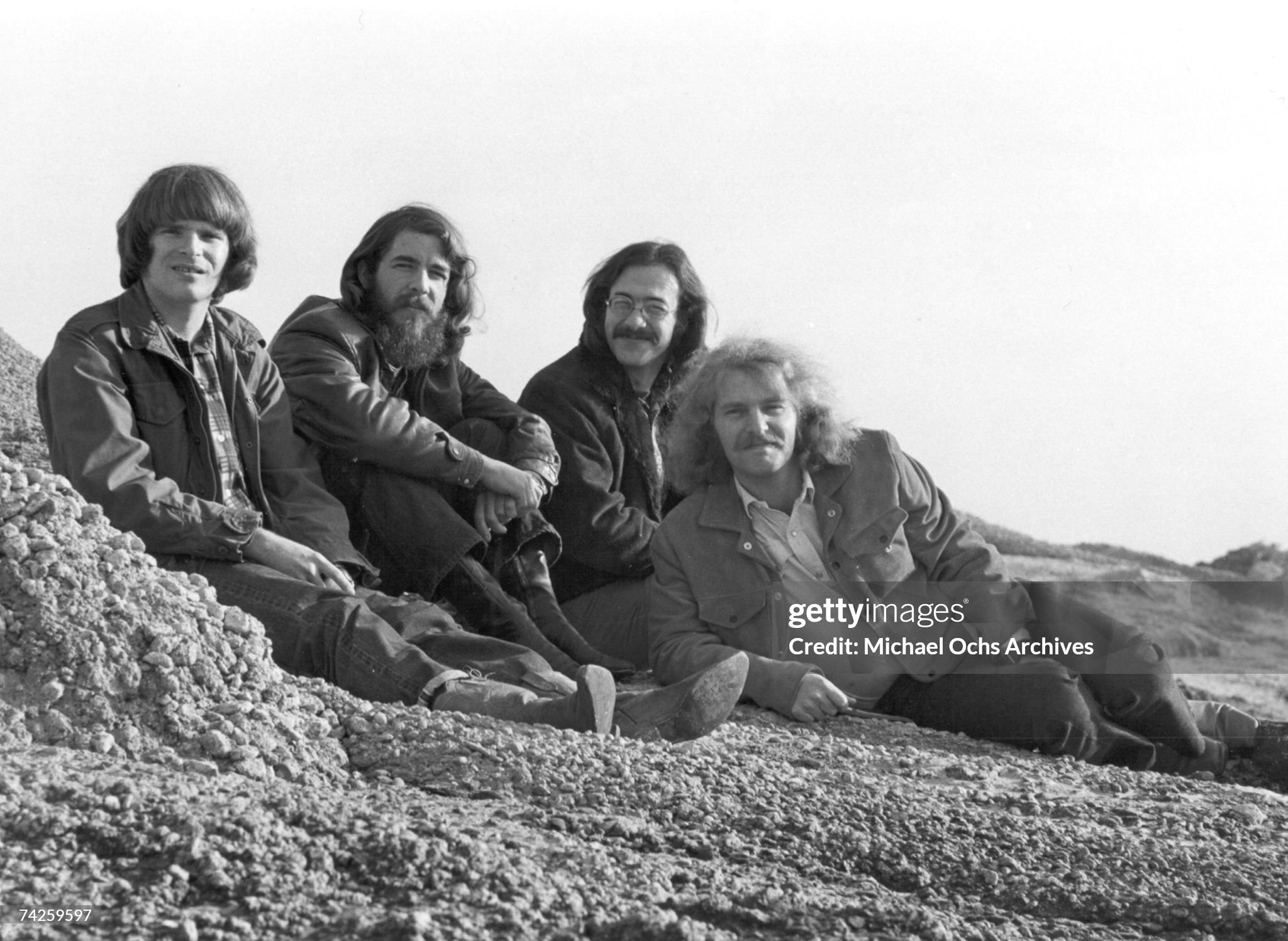
“It’s Just a Thought” is CCR at their most inward—an unhurried confession where doubt doesn’t break love, it simply tells the truth out loud.
If you place Creedence Clearwater Revival in your mind as a band of engines and rivers—tight riffs, hard travel, songs that move like wheels on gravel—then “It’s Just a Thought” feels like the moment the car pulls over and the driver finally admits what’s been gnawing at him for miles. It appears on Pendulum (released in early December 1970 on Fantasy Records, most commonly dated December 7, 1970), written and produced by John Fogerty. The album itself was another major crest for the band, peaking at No. 5 on the Billboard 200, while its big commercial signal came from the single pairing “Have You Ever Seen the Rain” / “Hey Tonight,” which reached the Top 10 in early 1971. “It’s Just a Thought” wasn’t the single, and that is exactly why it matters: it’s the kind of track you only meet when you stay with the album long enough for the bright lights to dim.
Pendulum arrived at a complicated point in CCR’s story. The public heard a band still surging; inside the group, pressures were rising—creative control, exhaustion, the strain of being relentlessly efficient in a rock era that often prized looseness. Sonically, Pendulum is where CCR subtly steps beyond the strict guitar-bass-drums silhouette: more keys, more texture, a broader palette than the earlier “four guys in a room” snap. In that wider space, “It’s Just a Thought” breathes. It runs roughly 3:50–3:56 depending on the pressing, and it sits on the album’s second side like a late-night lamp: not dazzling, but honest enough to change the mood of the whole room.
The title is almost a defense mechanism—“It’s Just a Thought”—as if the narrator is trying to keep his own feelings from becoming too real. That’s the song’s emotional trick: it speaks softly so it can confess something heavy. Fogerty’s voice here doesn’t swagger; it weighs. He sounds like someone rehearsing a goodbye without fully committing to it, circling the possibility the way people do when they’re afraid of the moment they’ll have to say the words plainly.
And that’s the meaning at the core: the fragile space between certainty and surrender. The narrator isn’t proclaiming a decision; he’s admitting a fear. The phrase “just a thought” is what you say when you want to test the truth without paying the full price of saying it. It’s the language of someone who still cares—someone who doesn’t want to hurt, and perhaps doesn’t even want to leave, but can’t ignore the quiet erosion anymore. It’s a grown-up kind of heartbreak: less dramatic, more devastating, because it feels inevitable.
Musically, the track leans into patience. The tempo gives you room to remember your own life while the song plays—room for the mind to wander into old hallways, old conversations, old mornings when you knew something was changing but you kept the coffee talk polite. CCR’s greatness was never only their drive; it was their discipline. Here, that discipline becomes tenderness. The band holds back instead of pushing forward, letting the melody carry a reflective ache rather than a punchline hook.
It’s also worth noting where “It’s Just a Thought” sits in the larger CCR arc. Pendulum is the last Creedence studio album released while Tom Fogerty was still in the band; his departure followed not long after. Even if you don’t know that history, you can feel a closing-of-doors quality in the album’s atmosphere—less of the wild sprint of 1969, more of a band standing still long enough to hear its own footsteps. In that sense, “It’s Just a Thought” becomes quietly symbolic: a song about the first whisper of leaving, captured on an album made during a time when leaving was beginning to stop being hypothetical.
What makes it linger, decades later, is its refusal to shout. Many songs about love’s end are built like storms. “It’s Just a Thought” is built like weather changing—gradually, almost politely, until you realize the season has turned. And when it ends, it doesn’t feel “finished.” It feels like the last line of a conversation that will continue in your head long after the needle lifts.
That is the particular, understated magic of CCR at their most reflective: they could make a private thought sound like a shared memory—something you didn’t know you were carrying, until the song carried it for you.